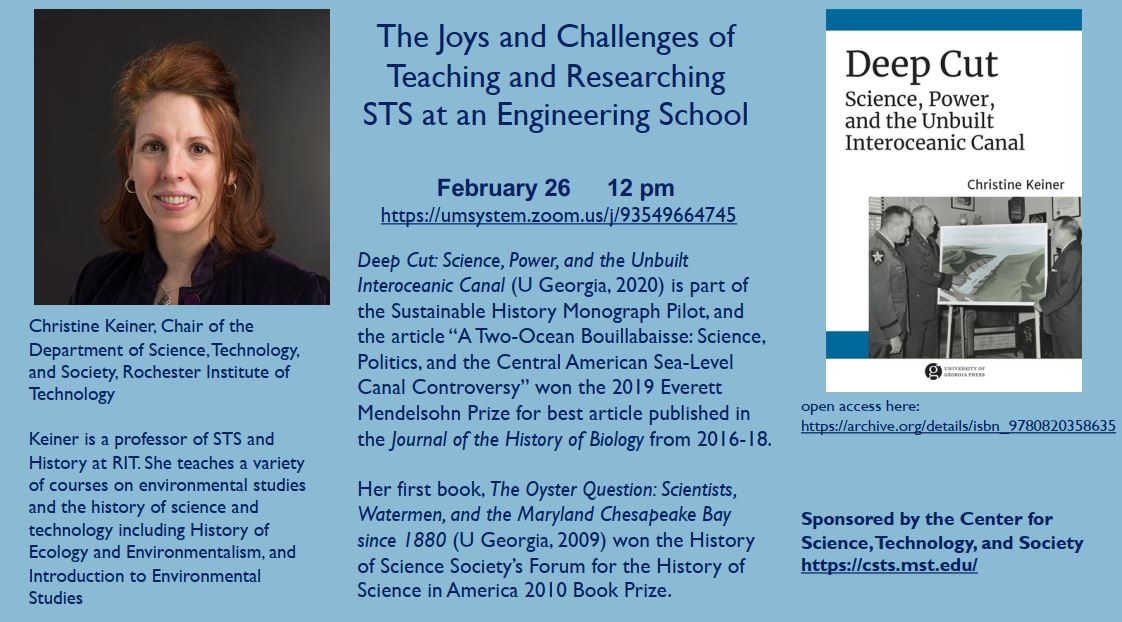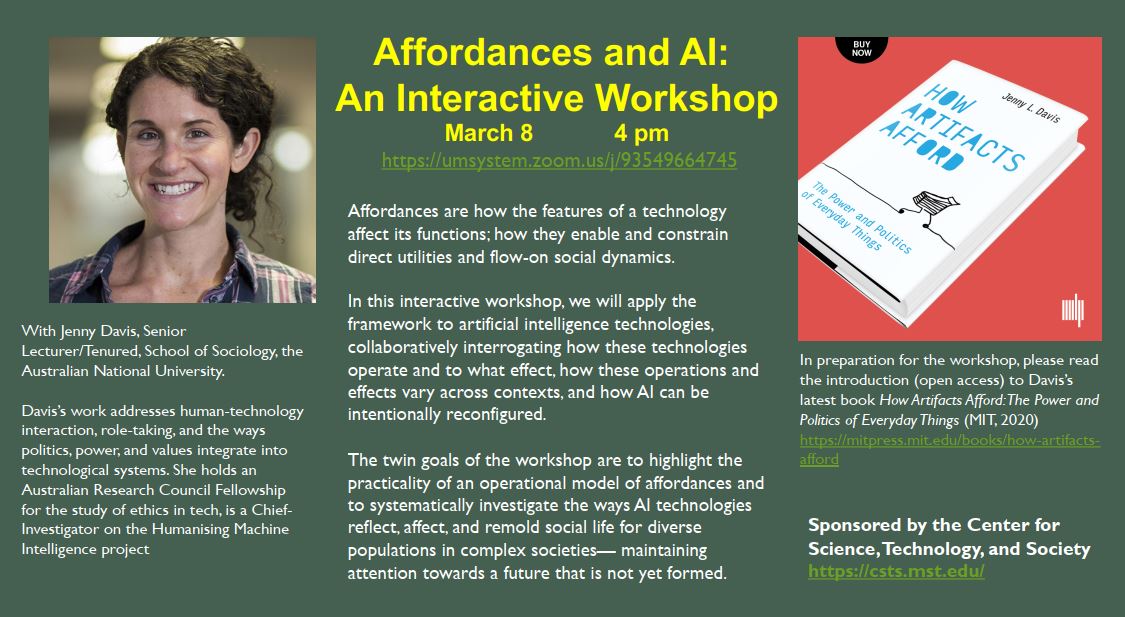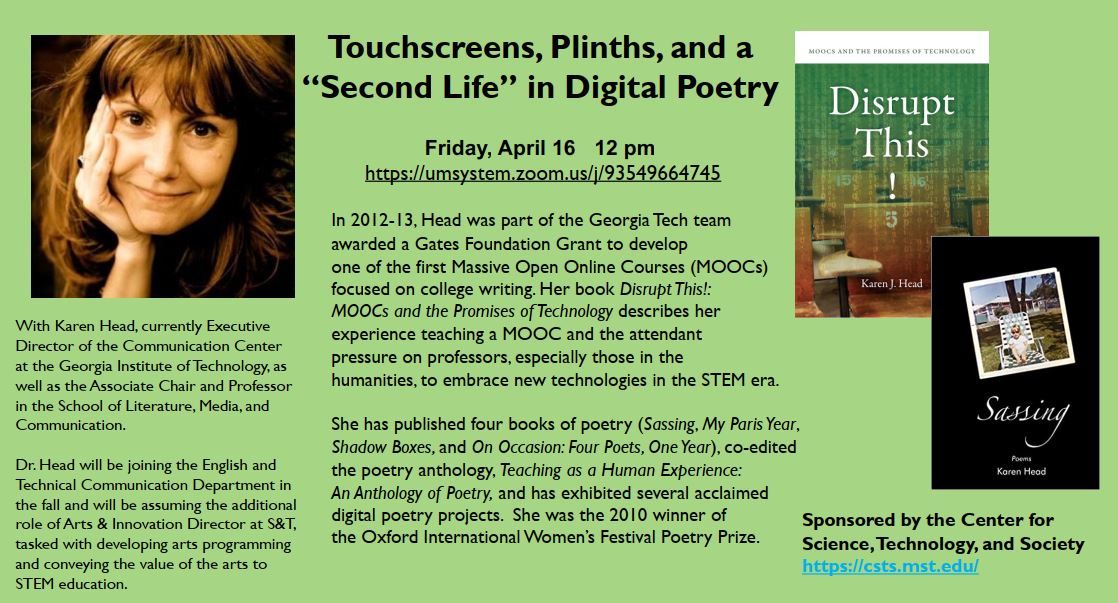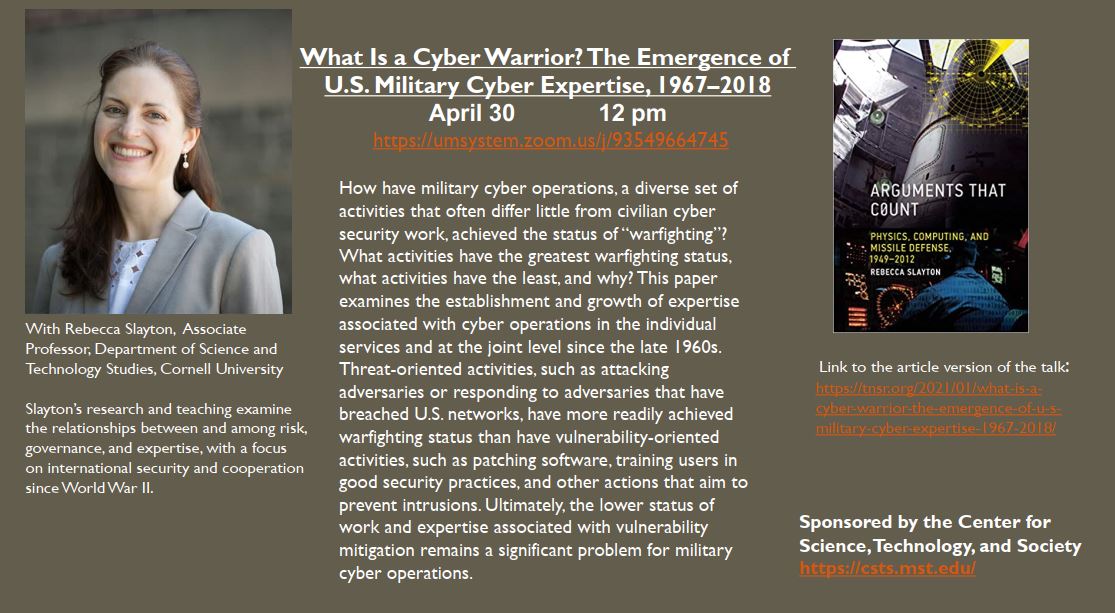2020 Events

The Joys and Challenges of Teaching and Researching STS at an Engineering School - February 26 12 pm
With Christine Keiner, Chair of the Department of Science, Technology,and Society, Rochester Institute of Technology
Deep Cut: Science, Power, and the Unbuilt Interoceanic Canal (U Georgia, 2020) is part of the Sustainable History Monograph Pilot, and the article “A Two-Ocean Bouillabaisse: Science, Politics, and the Central American Sea-Level Canal Controversy” won the 2019 Everett Mendelsohn Prize for best article published in the Journal of the History of Biology from 2016-18.

Affordances and AI: An Interactive Workshop -March 8, 2020 4 pm
With Jenny Davis, Senior Lecturer/Tenured, School of Sociology, the Australian National University.
Affordances are how the features of a technology affect its functions; how they enable and constrain direct utilities and flow-on social dynamics.
In this interactive workshop, we will apply the framework to artificial intelligence technologies, collaboratively interrogating how these technologies operate and to what effect, how these operations and effects vary across contexts, and how AI can be intentionally reconfigured.

Touchscreens, Plinths, and a “Second Life” in Digital Poetry - Friday, April 16 12 pm
With Karen Head, currently Executive Director of the Communication Center at the Georgia Institute of Technology, as well as the Associate Chair and Professor in the School of Literature, Media, and Communication
In 2012-13, Head was part of the Georgia Tech team awarded a Gates Foundation Grant to develop one of the first Massive Open Online Courses (MOOCs) focused on college writing. Her book Disrupt This!: MOOCs and the Promises of Technology describes her experience teaching a MOOC and the attendant pressure on professors, especially those in the humanities, to embrace new technologies in the STEM era.
Touchscreens, Plinths, and a “Second Life” in Digital Poetry Flyer

What is a Cyber Warrior? The Emergence of U.S. Military Cyber Expertise, 1967-2018- April 30 12 pm
With Rebecca Slayton, Associate Professor, Department of Science and Technology Studies, Cornell University
How have military cyber operations, a diverse set of activities that often differ little from civilian cyber security work, achieved the status of “warfighting”? What activities have the greatest warfighting status, what activities have the least, and why? This paper examines the establishment and growth of expertise associated with cyber operations in the individual services and at the joint level since the late 1960s.
